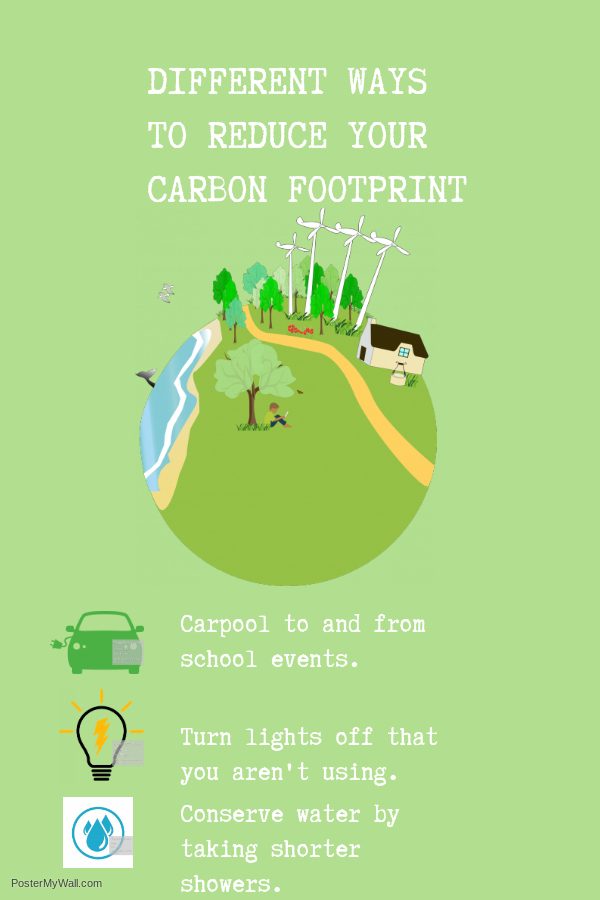Carbon footprint, a walk towards reduction of climate change effects
Infographic that displays different ways for students and staff to reduce their carbon footprint.
April 15, 2019
Spring has come; the world is once again reminded to do their part in conservation. While recycling and waste limitation is certainly something to encourage, reducing individual carbon footprint should be the focal point of conservation and sustainability efforts.
The rise in temperature produces harmful effects on the environment, such as rising sea levels, extreme weather events, ocean acidification, and destruction of animal habitats.
High emissions of carbon dioxide and other greenhouse gases in the atmosphere trap heat from the sun, causing an increase in atmospheric temperature and damages to the shield-like ozone layer.
This excess amount of carbon dioxide acts as a blanket, keeping it from escaping Earth’s atmosphere.
With the human emission of greenhouse gases considered to be one of the leading causes of climate change, it is important that each person reduces their carbon footprint, which is the total sum of individual carbon emission due to daily choices.
Lifestyle choices range from diet, transportation, wardrobe choice, electricity consumption, and consumerism.
“To reduce your footprint, you can perform simple everyday activities, such as reducing gas to limit emissions, turning off the lights, and choosing different transportation modes,” said Project Green Teens sponsor Michelle Bailey-Hennessey.
Carpooling to and from school events can cut down on carbon dioxide emissions and unnecessary traffic.
For more ways to easily reduce one’s carbon footprint, websites like cotap.org provide easy and effective methods.
While slowing the effects of global warming will take a collaborative effort worldwide, the process has to start at the grassroots level with the individual.
“Based on what I’ve read about global warming, I’d definitely say that the rate at which it’s occurring concerns me in the long run,” said junior Deni Dimitrova. “However, I do wonder whether or not it’s worth it to make such drastic changes to the world around us, considering how long it will take for our efforts to decrease the rate of global warming.”


